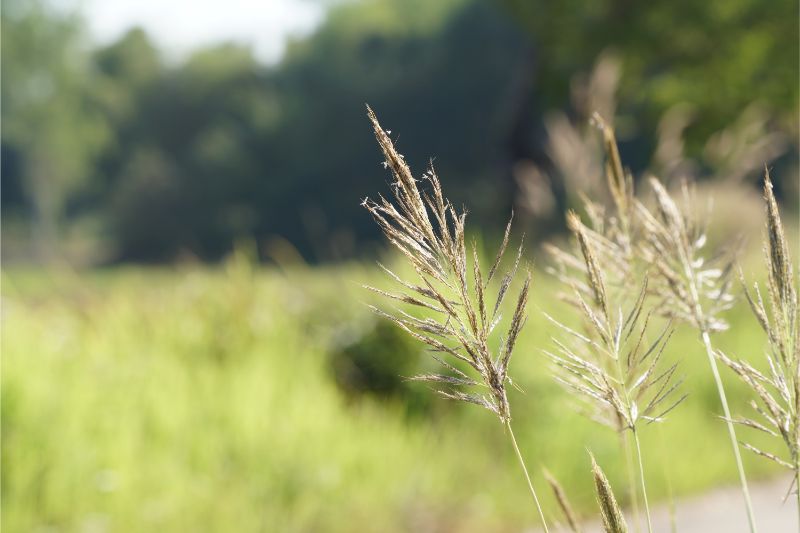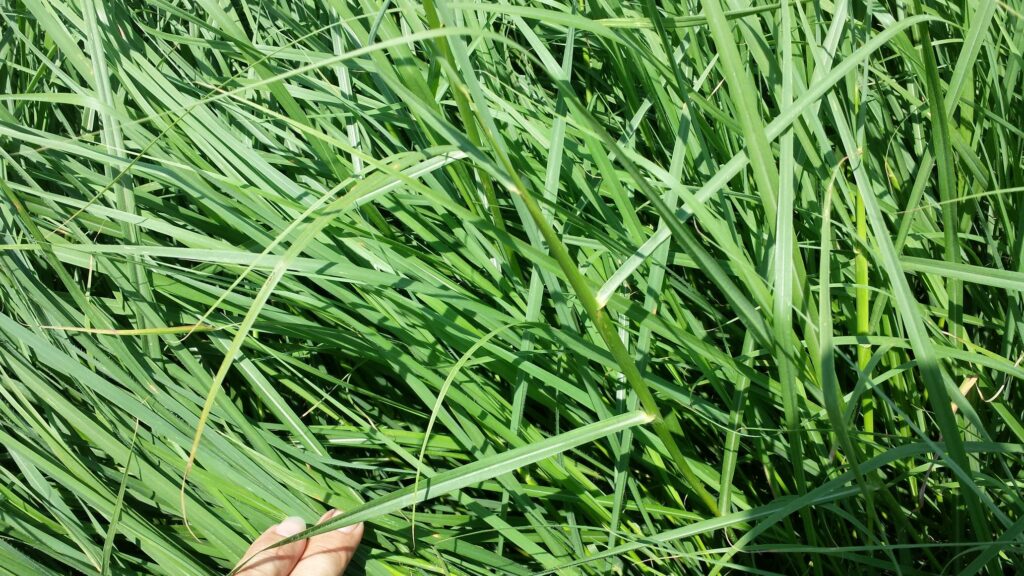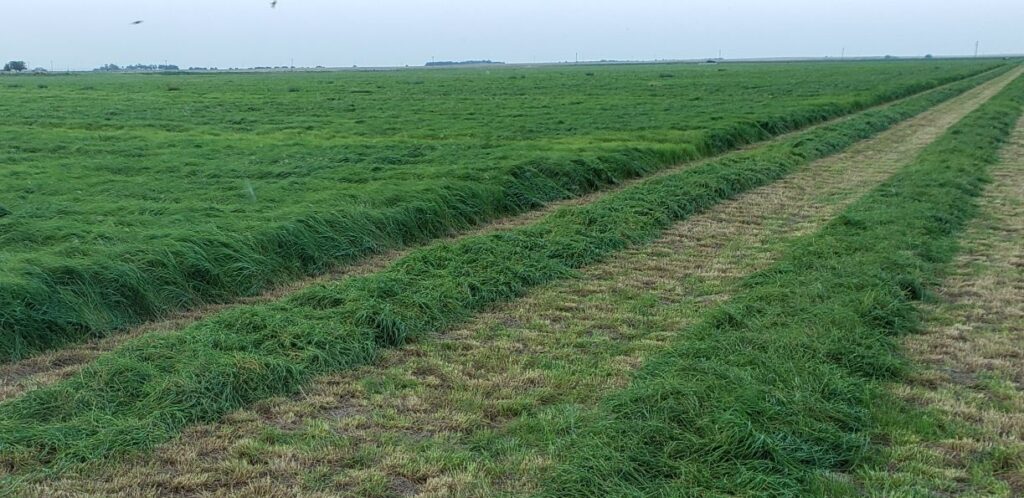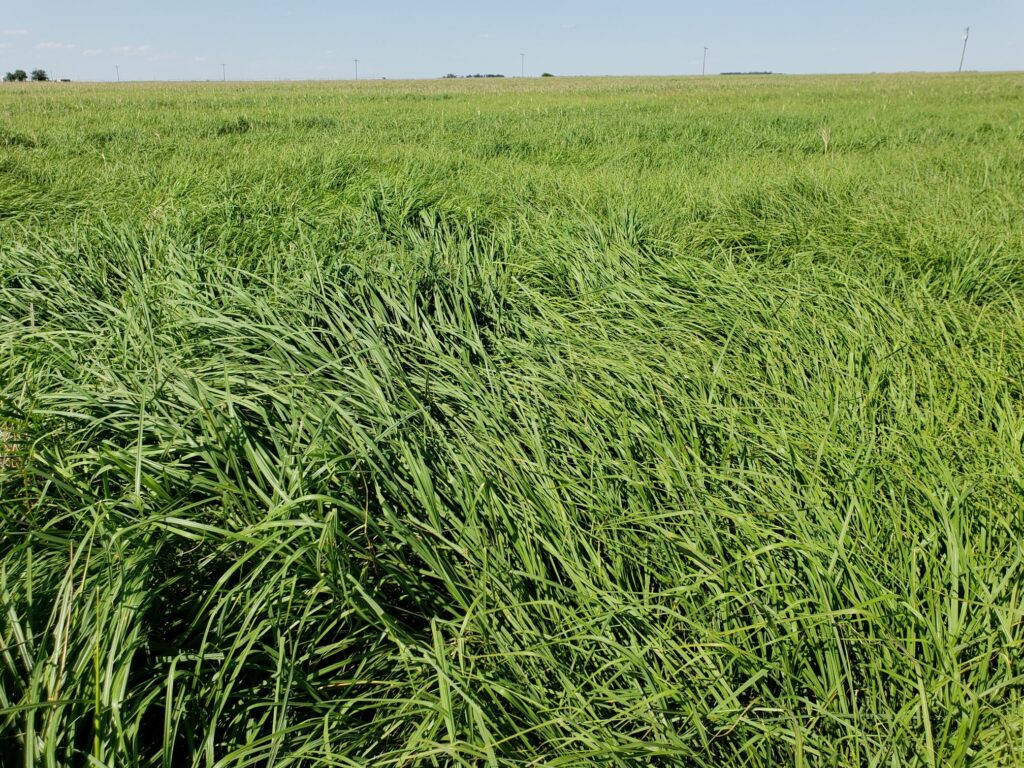Old World Bluestems
(Bothriochloa ischaemum)
Old World Bluestems also known as yellow bluestems are medium-tall, long-lived, warm season bunchgrasses introduced from temperate regions of Eurasia and also in the Atlas Mountains of North Africa. Their common name, “yellow bluestems”, comes from the fact that below the nodes, the stems are light yellow. The species has a broad area of adaptation throughout a large portion of the Southern United States, especially Texas, Oklahoma and New Mexico where it supplies dependable grazing and cured forage.
There is a wide variation in plant types within the species, however, most selections provide a very leafy and nutritious forage which can be grazed by livestock or harvested as hay.
Growth begins late in the spring and continues through the summer. Plants usually grow 2 to 4 feet tall depending on available moisture. The leaf blades are less than 1/2 inch wide and approximately 8 to 12 inches long. The leaves flattened at the base are dark green in color until the plants reach maturity. Because of its habit of growth and exceptional forage production, most of the Old World bluestems have shown great potential for revegetation of rangeland or abandoned cultivated land. Seedings should be made on well-prepared, firm seedbed free from weeds. Plant before the normal spring or summer rains are expected. A seeding rate of 2-5 pls pounds per acre at a depth of approximately 1/8 – 1/4 inches deep.


General Characteristics
| Growth Type: | Bunch |
| Life Span: | Perennial |
| Growing Season: | Warm Season |
| Native/Introduced: | Native |
| Plant Height: | 2-4 feet |
| Cold Tolerance: | Good |
| Drought Tolerance: | Good |
| Salt Tolerance: | Poor |
| Soil Type: | Widely Adapted |
| Minimum Rainfall: | 18 inches |
| Planting Rate: | 2-5 pls# |
| Planting Date: | Feb. - June |
| Seed Type: | Chaffy |
| Uses: | Grazing, Hay, Erosion Control |


